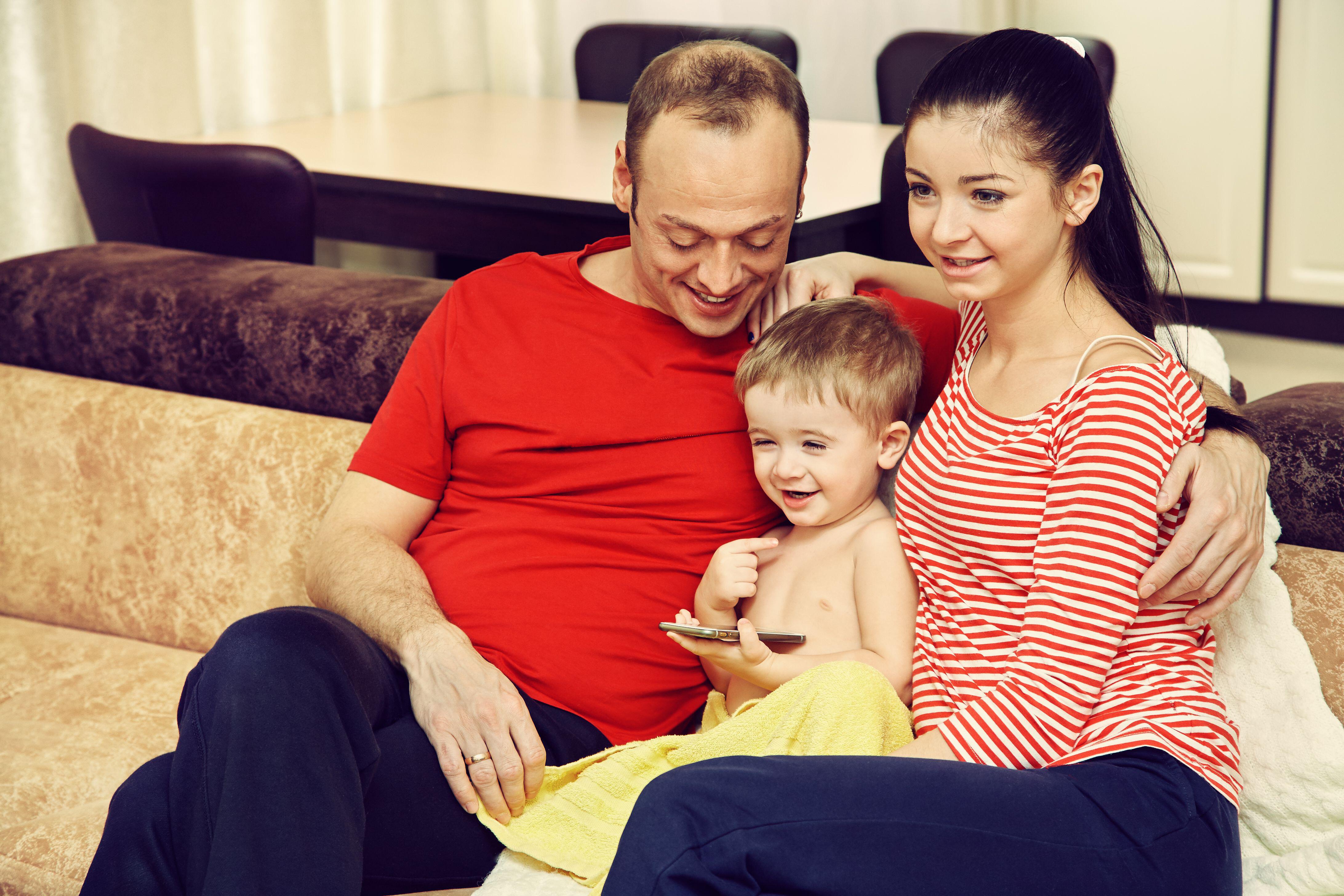Watching television with a young child can boost their development – study
Scientists claim watching age-appropriate content can have a benefit on cognitive development.

Your support helps us to tell the story
From reproductive rights to climate change to Big Tech, The Independent is on the ground when the story is developing. Whether it's investigating the financials of Elon Musk's pro-Trump PAC or producing our latest documentary, 'The A Word', which shines a light on the American women fighting for reproductive rights, we know how important it is to parse out the facts from the messaging.
At such a critical moment in US history, we need reporters on the ground. Your donation allows us to keep sending journalists to speak to both sides of the story.
The Independent is trusted by Americans across the entire political spectrum. And unlike many other quality news outlets, we choose not to lock Americans out of our reporting and analysis with paywalls. We believe quality journalism should be available to everyone, paid for by those who can afford it.
Your support makes all the difference.Watching television along with a young child can be beneficial to their cognitive development, according to a new study.
Researchers from the University of Portsmouth say that although too much exposure of young infants to TV may be detrimental to play, language development and executive functioning, watching age-appropriate content can also have its benefits.
These benefits can include reinforcing their learning and improving conversation skills through co-viewing with an adult.
Dr Eszter Somogyi from the university’s department of psychology said: “We’re used to hearing that screen exposure is bad for a child and can do serious damage to their development if it’s not limited to, say, less than an hour a day. While it can be harmful, our study suggests the focus should be on the quality or context of what a child is watching, not the quantity.
“Weak narrative, fast-pace editing, and complex stimuli can make it difficult for a child to extract or generalise information.
Watching television with your child and elaborating and commenting on what is viewed can help enhance their understanding of the content
“But when screen content is appropriate for a child’s age, it’s likely to have a positive effect, particularly when it’s designed to encourage interaction.”
The research, published in Frontiers In Psychology, looked at 478 studies published in the past two decades and concluded that context was crucial to how beneficial screen use could be.
Dr Somogyi explained: “Families differ a lot in their attitudes toward and the use of media.
“These differences in the viewing context play an important role in determining the strength and nature of TV’s impact on children’s cognitive development.
“Watching television with your child and elaborating and commenting on what is viewed can help enhance their understanding of the content, reinforcing their learning during educational programmes.
“Co-viewing can also contribute to the development of their conversation skills and provides children with a role model for appropriate television viewing behaviour.”
The research authors point out that in the past 30 years the number of television programmes targeting infants had increased with the screen time of children aged between 0 and two years doubling between 1997 and 2014.
The authors recommend reinforcing contexts that promote learning, such as viewing chosen age-adapted content, viewing with adult supervision, and not having a second device or TV screen on in the background.
Dr Bahia Guellai, from the department of psychology at Paris Nanterre University, who was also involved in the research, said: “The important ‘take-home message’ here is that caregivers should keep in mind new technologies.
“Television or smartphones should be used as potential tools to complement some social interactions with their young children, but not to replace (them).
“I think the most important challenge of our societies for future generations is to make adults and young people aware of the risk of an unconsidered or inappropriate use of screen use.
“This will help in preventing situations in which screens are used as the new type of child-minding, as it has been during the pandemic lockdowns in different countries.
“I am optimistic with the concept of finding an equilibrium between the rapid spread of new technological tools and the preservation of the beautiful nature of human relationships.”